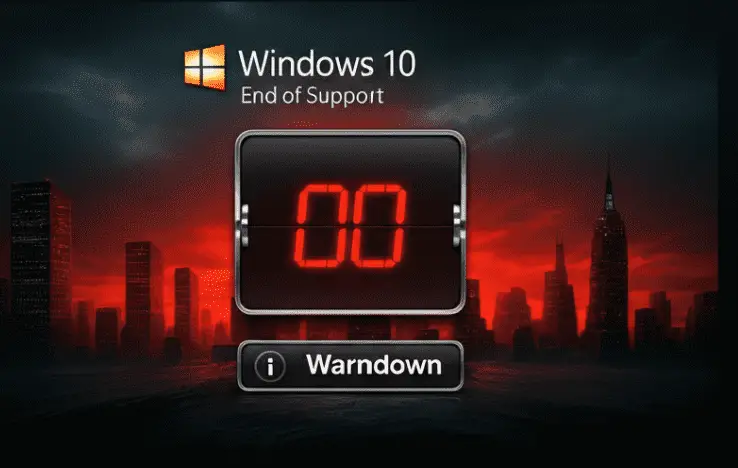
With millions of German computers still running the soon-to-be-obsolete Windows 10, and a worryingly low adoption rate of Windows 11, ESET warns of a cybersecurity risk unless users take immediate action to upgrade their systems. With over 32 million devices still running the nearly decade-old operating system, IT security experts warn of a looming disaster unless swift action is taken.
According to a recent analysis by ESET, Windows 10 powers 65% of all computers in German households. In stark contrast, the adoption rate of Windows 11 stands at just 33%, leaving a significant portion of users exposed to heightened cybersecurity risks. Alarmingly, over one million devices continue to operate on outdated systems such as Windows 8.1, 8, 7, or even Windows XP, further compounding the threat.
Microsoft has scheduled the end of support for Windows 10 on October 14, 2025. After this date, security updates and patches for newly discovered vulnerabilities will cease, effectively leaving millions of systems unprotected. “It is five to midnight for avoiding a security catastrophe in 2025,” says Thorsten Urbanski, IT security expert at ESET.
ESET strongly advises users to migrate to Windows 11 or consider alternative operating systems like Linux for older devices that cannot handle the latest Windows upgrade. “Delaying the transition will expose users to significant risks, including cyberattacks and data loss,” Urbanski adds. For enterprises, the stakes are even higher, as outdated systems can become gateways for ransomware attacks, espionage, and severe data breaches.
The current situation is more precarious than the support termination of Windows 7 in early 2020. “By the end of 2019, over 70% of users had migrated to Windows 10, leaving only 20% on Windows 7,” Urbanski notes. In contrast, the slow adoption of Windows 11 signals a brewing crisis. “Cybercriminals are well aware of these numbers and are undoubtedly preparing for the October 2025 cutoff date.”
While Microsoft plans to offer extended, paid support for Windows 10, the cost is steep and rises exponentially with each additional year of usage. For businesses, continuing to use outdated systems could lead to:
- Cybersecurity vulnerabilities: Increased susceptibility to data breaches, ransomware, and spyware.
- Compliance violations: Outdated software may conflict with data protection regulations, resulting in fines and reputational damage.
- Productivity losses: Incompatibility with modern software and hardware could hinder operations.
Insurers may also deny claims stemming from cyber incidents on unsupported systems, citing negligence.
To mitigate these risks, ESET recommends the following proactive measures:
- Upgrade Operating Systems: Transition to Windows 11 immediately or explore Linux-based alternatives for older hardware. Avoid delaying until October 2025.
- Regular Updates: Enable automatic updates for operating systems, firmware, and installed applications to stay ahead of emerging threats.
- Use Comprehensive Security Software: Invest in internet security solutions equipped with exploit blockers and cloud-based threat detection to counter unknown vulnerabilities.
- Restrict Admin Rights: Minimize the use of administrative privileges to reduce the risk of unauthorized changes or malware execution.
- Backup Data Regularly: Maintain backups on external storage or secure cloud services to recover swiftly in case of an attack or system failure.
Related Posts:
- CISA Warns of Actively Exploited Apache OFBiz CVE-2024-38856 Vulnerability, PoC Available
- Kali Linux 2024.2 Released: An Upgrade for the Penetration Tester’s Arsenal
- Huawei is surveyed by the United Kingdom due to using outdated software may pose a network security risk